We failed to ensure the horrors of the Holocaust would never happen again: Former IDF Gaza commander
Retired Maj. Gen. Gadi Shamni joins 'FOX & Friends' as Israel prepares a ground invasion of Gaza to root out Hamas.
On a tour of southern Israel Thursday aimed at boosting morale among troops preparing for a likely ground operation inside Gaza, Israeli Defense Minister Yoav Gallant promised to lead Israel to a decisive victory against Hamas.
"We will be precise and forceful, and we will keep going until we fulfill our mission," Gallant stated.
What exactly that mission is has been clearly echoed throughout Israel’s military ranks up to its political leadership over the last two weeks since an elite unit of the Palestinian terrorist group Hamas launched a surprise attack on southern Israel.
After the murder of 1,400 people, civilians and soldiers and the kidnapping of 210 people, Israel has said it will not stop this war until Hamas, its people and its infrastructure are wiped out.
ISRAEL’S HUNT FOR HAMAS TERROR GROUP LEADER YAHYA SINWAR: 'DEAD MAN WALKING'
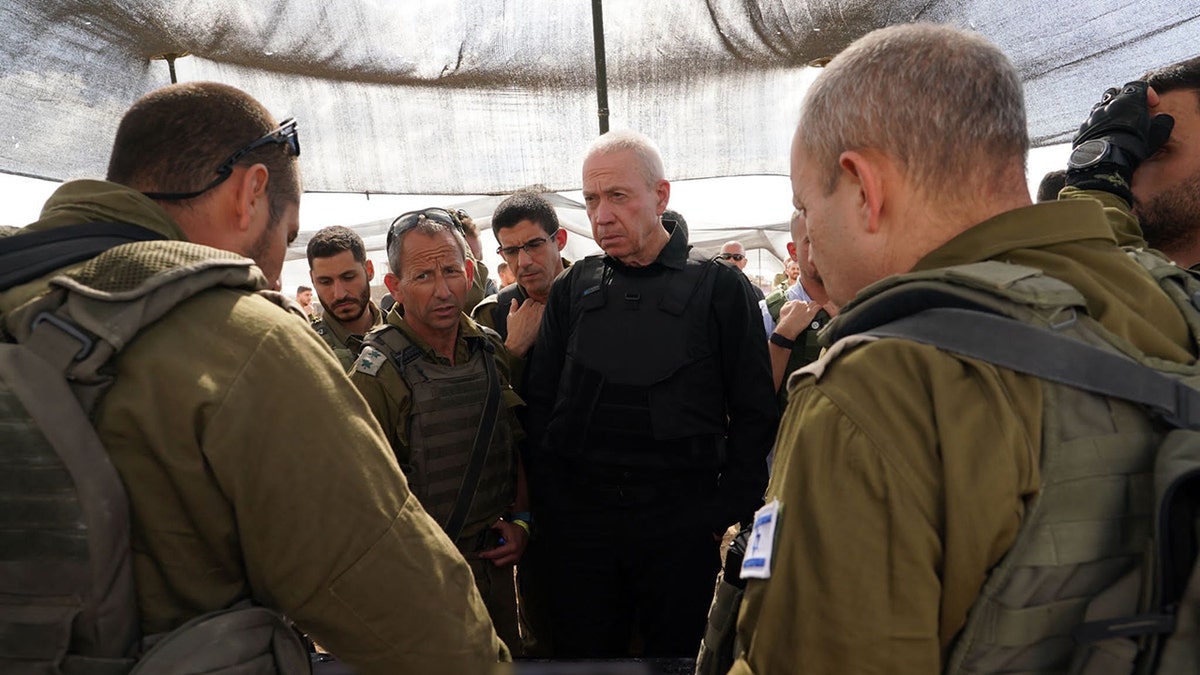
Israeli Defense Minister Yoav Gallant meets with Israeli soldiers near the Gaza border as the clash between the Israeli army and Palestinian factions continues in Israel Oct. 19, 2023. (Israeli Defense Ministry/Ariel Hermoni/Handout/Anadolu via Getty Images)
Voices around the world have begun questioning whether Israel’s response is "proportionate," calling for restraint as the civilian death toll in Gaza rises and demanding a cease-fire before this conflict drags in other, more nefarious, regional players
But Israelis remain steadfast, believing there is no choice — "It’s either them or us." There is no room in the region for both.
Speaking to Fox News Digital, Eylon Levy, an Israeli government spokesman, reiterated Israel’s goal to destroy Hamas.
"Demanding a ceasefire from Israel is saying that Hamas should get away with what it did — and should keep its ability to do it again," Levy said.
VIDEO SHOWS CARGO PLANES DELIVERING ARMORED VEHICLES TO ISRAELI DEFENSE FORCES
"Until we complete our mission of dismantling Hamas, urging a ceasefire is the pro-Hamas position.
"We’re talking about whole families cremated alive, burned until there was nothing left of the children but fragments of bone and ash," Levy said, describing the sprawling attack on multiple communities and towns throughout southern Israel. "These images reminded us not only of ISIS but of the worst horrors of the Holocaust. Israel cannot allow this satanic terror organization to threaten its citizens any longer."
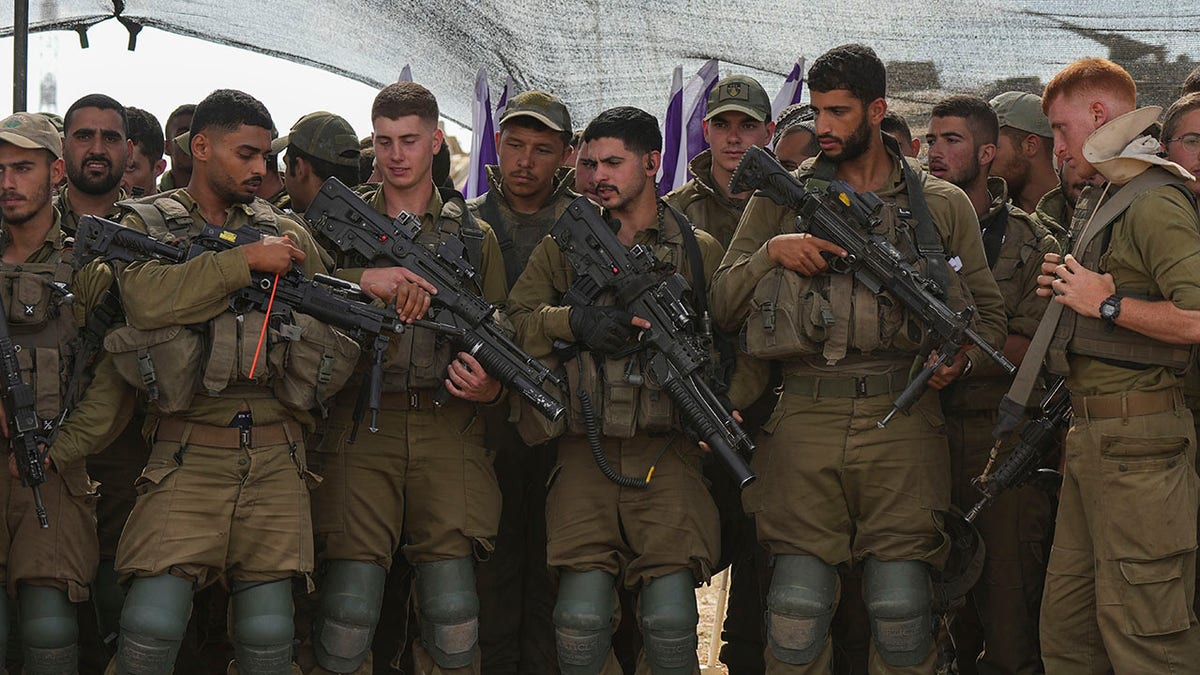
Israeli soldiers listen to Israel's Defense Minister Yoav Gallant during his visit to a staging area near the border with the Gaza Strip in southern Israel Thursday, Oct. 19, 2023. (AP/Tsafrir Abayov)
On Friday night, two of the hostages – U.S. nationals Judith and Natalie Raanan – were released by Hamas, and on Saturday morning the United Nations confirmed that several truckloads of aid had crossed into the Gaza Strip from Egypt. Despite this, Israel continued its airstrikes in the Palestinian enclave, hitting key infrastructure sites used by Hamas terrorists.
Miri Eisen, a retired IDF colonel and director of the International Institute for Counterterrorism at Reichman University near Tel Aviv, said, "Israel has no choice in doing this because, on Oct. 7, 2023, all of us who have been following Hamas our entire adult lives were caught by surprise.
"In its 16 years ruling Gaza, Hamas has built a subterranean system of tunnels, it has tons of operatives and the leaders of this terror group planned, trained and invested down to the tiniest of details a terror attack that is incomparable to anything that has ever happened anywhere else. This is not about revenge. This is just like what the world faced with ISIS. We must erase every part of their operation."
Describing the horrific brutality of Hamas’ attack, which included members of its armed Nukhba force killing, brutalizing, decapitating, raping and even burning people alive, as well as kidnapping hundreds, Eisen said, "The world cannot allow any terror organization — not Hamas, not ISIS and not Hezbollah — to replicate and execute another attack of this kind in the heart of civilian communities.
"Anyway, who would be willing to go back to live in an area with that kind of threat?"
According to information shared by the IDF, some 22 communities and two towns were attacked by up to 3,000 Palestinian terrorists, including some from other extremist organizations in Gaza.
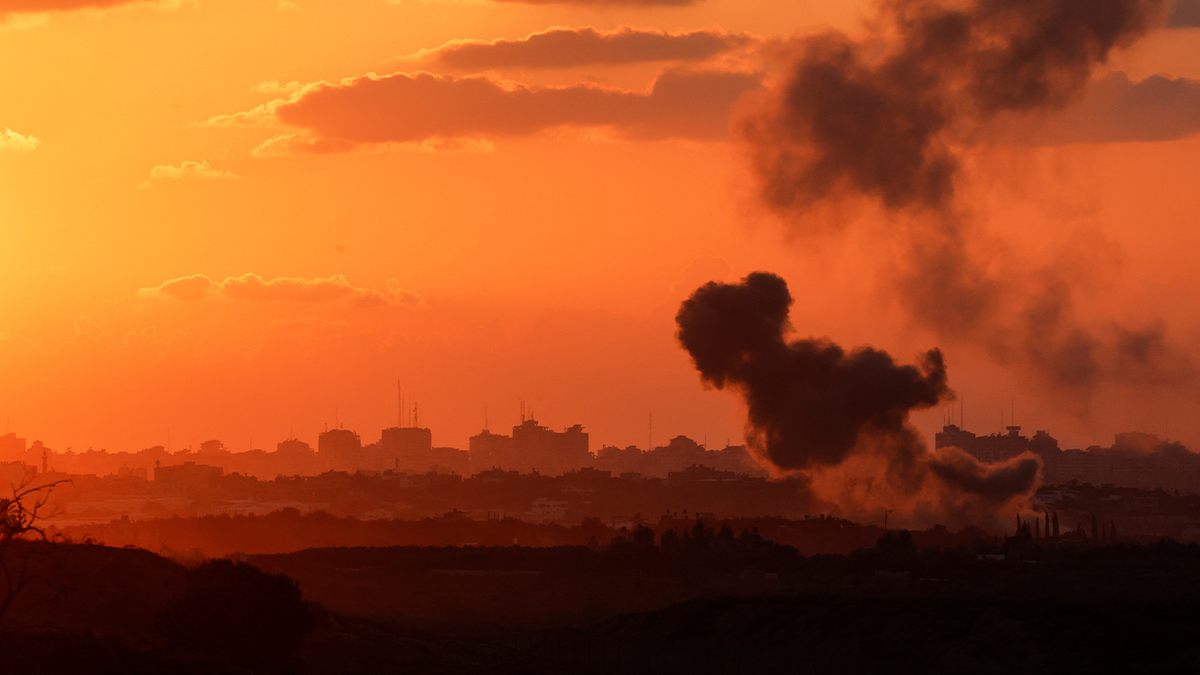
Smoke rises Israel's border with the Gaza Strip in southern Israel Oct. 18, 2023. (Reuters/Amir Cohen)
In at least a dozen of the communities, most of which are agricultural villages (kibbutzim), homes and infrastructure were destroyed. All Israeli civilians that survived have now been evacuated from the area around the Gaza Strip, and many who survived the attack have nowhere left to return. This is the first time in Israel’s 75-year history there are internally displaced citizens. Estimates say the number is higher than 50,000 people.
"The whole concept that Israel lived with for decades regarding the security and safety of its civilian population around the Gaza Strip has collapsed," Shaul Shay, also a retired IDF colonel and former deputy head of Israel’s National Security Council, told Fox News Digital.
"If, in the past, Israel thought it could contain Hamas through rounds of violence, rocket fire tunnels, and other efforts, the recent attack showed us in a painful way that the concept no longer works," he said. He added that, during the previous rounds, there had been debates over removing Hamas and retaking control of Gaza. Israel controlled the Strip until it unilaterally withdrew in 2005, but the cost was always considered to be too high.
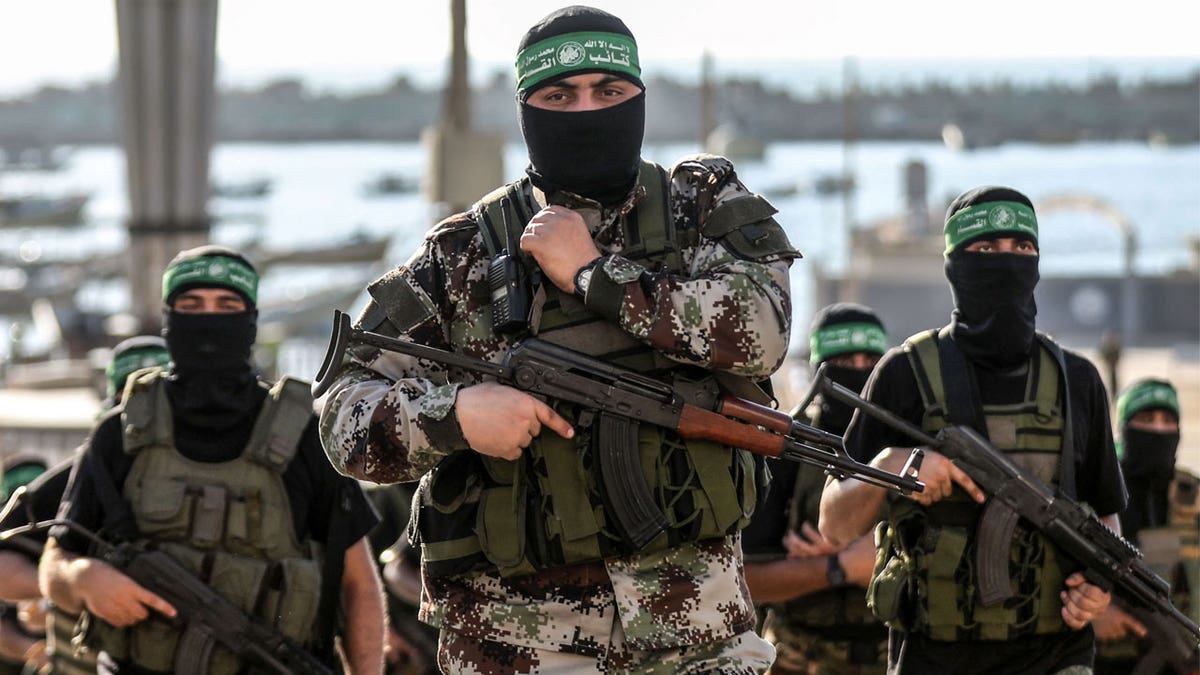
Terrorists from Hamas during an anti-Israel military march in Gaza City. (Yousef Masoud/Majority World/Universal Images Group via Getty Images)
"There is no other option but to totally change the paradigm in the Gaza Strip," Shay said. "It is impossible to return to what happened before."
Since Hamas’ surprise attack, Israel has carried out hundreds of airstrikes against what it calls "terror infrastructure" in the Palestinian enclave and assassinated a growing number of top-ranking leaders from the various terror groups operating there. The army has said its main goal is reaching Hamas leader Yahya Sinwar, who the IDF spokesman has described as a "dead man walking."
Yet with much of Hamas’ so-called fighting infrastructure buried deep beneath the ground in residential areas, including beneath hospitals, schools and houses of worship, according to the Israeli military, civilian deaths are unavoidable. The Hamas-run Gaza health ministry claims at least 4,137 Palestinians have been killed in Gaza so far.
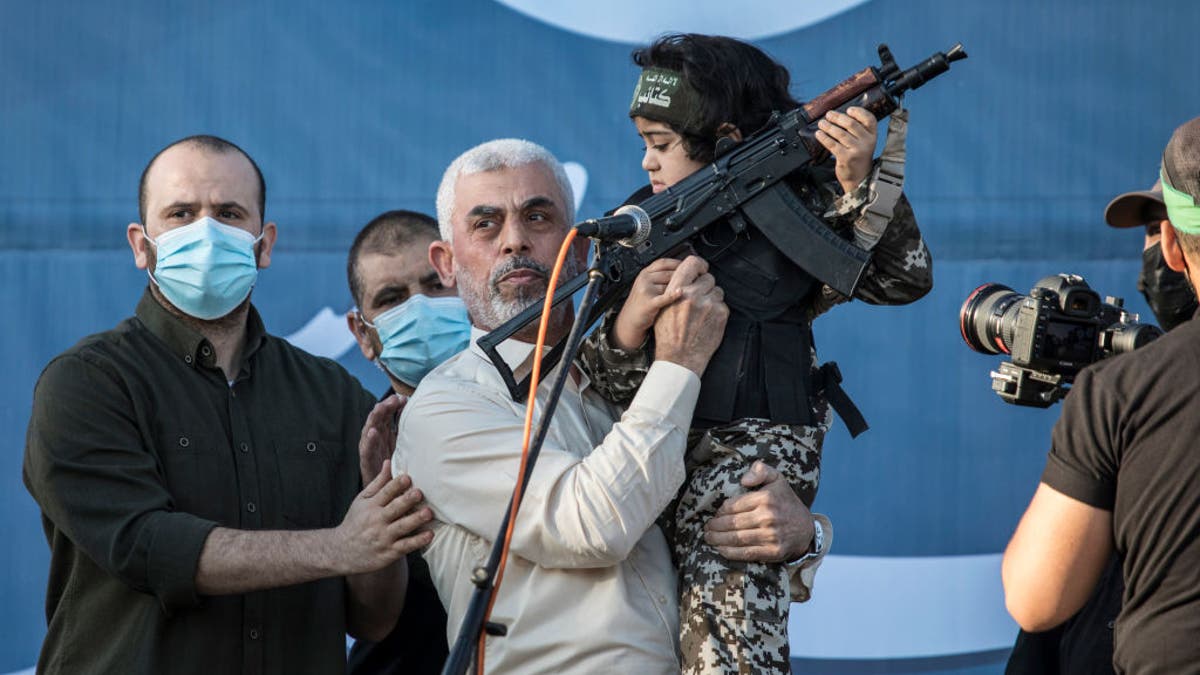
Hamas terror leader Yahya Sinwar is believed to be in hiding, fearing an Israeli attack. Here he appears during a ceremony for terrorists killed by Israeli airstrikes at Yarmouk Stadium May 24, 2021, in Gaza City, Gaza. (Laurent Van der Stockt/Getty Images)
As the death toll in Gaza rises and the humanitarian situation worsens, the delivery of essential aid from Egypt, which also shares a border with Gaza, had still not arrived Friday. Tensions in other parts of the region are also rising.
On Friday morning, Israel began evacuating the civilian population from its largest town in the north, Kiryat Shmona, as rocket fire and artillery continued to rain down from the Iranian-backed Shiite group Hezbollah.
MAKE SPONSORS OF TERRORISM LIKE IRAN PAY FOR THEIR CRIMES — LITERALLY
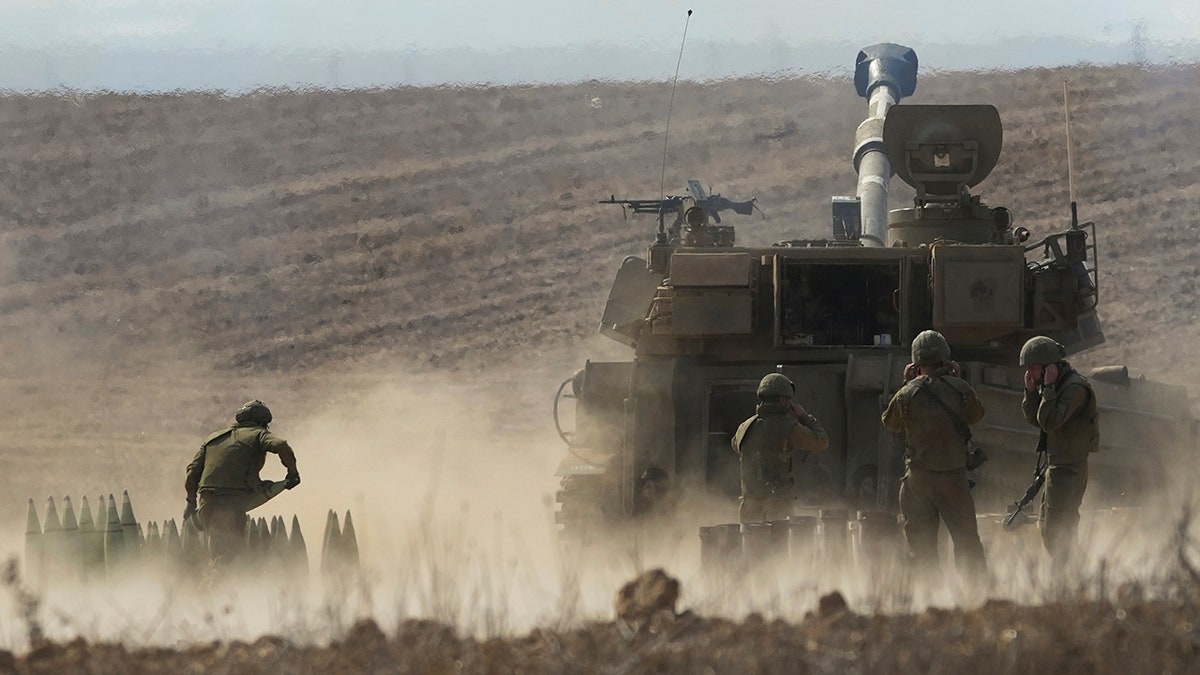
An Israeli mobile artillery unit fired a shell from southern Israel toward the Gaza Strip in a position near the Israel Gaza border. (AP/Erik Marmor)
"Unfortunately, this is not just a local problem," said Shay. "It is part of a regional conflict that on a geo-strategic level was initiated by Iran. Hamas, Hezbollah and other Shiite militia groups are all part of the Iranian infrastructure.
"Iran was concerned with the growing regional alliance that the U.S. was trying to build in the Middle East, including the possible peace agreement between Israel and Saudi Arabia and the Abraham Accords. They saw the regional balance shifting in favor of Israel and the U.S., and they wanted to stop it."
Lt. Col. (res) Shaul Bartal, a senior researcher at the Begin-Sadat Center for Strategic Studies at Bar Ilan University near Tel Aviv, said over the past few months he noticed an increase in meetings between senior Hamas leaders based outside of Gaza such as Ismail Haniyeh, Khaled Mashal and Saleh al-Arouri meeting with top Iranian officials.
"If you followed the Arabic news, then you saw that these leaders were meeting or speaking to each other nearly every week," noted Bartal, also a research fellow at Institutio do Oriente at the University of Lisbon. "As a researcher, I noticed something bad was happening and saw their courage increasing."
In addition to being emboldened by Iran, Bartal said, Hamas has long been "antisemitic ideologues, describing Jews as animals in a way that is similar to the Nazis."
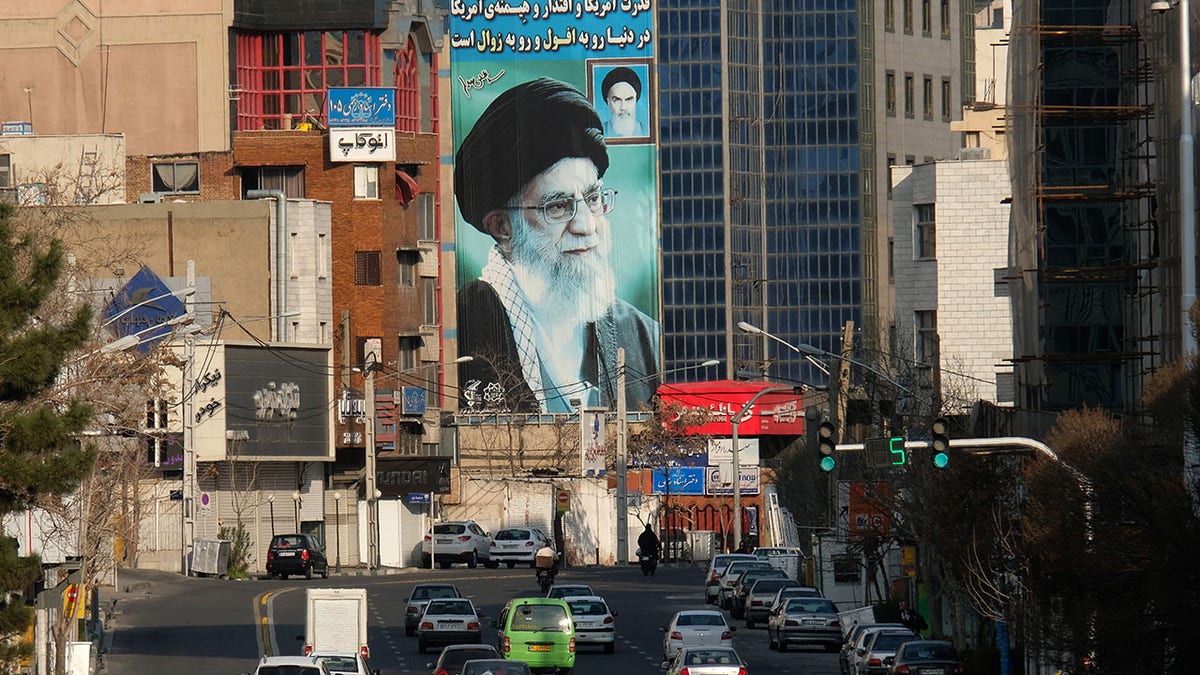
A huge mural of Ayatollah Seyyed Ali Khamenei, Iran's supreme leader, painted next to a smaller one of Ayatollah Ruhollah Khomeini, right, on Motahari Street March 8, 2020, in Tehran, Iran. (Kaveh Kazemi/Getty Images)
CLICK HERE TO GET THE FOX NEWS APP
"We knew this. That is why we built a fence to protect ourselves from them, and we spent millions of dollars to stop them reaching our territory, to stop their rockets and their attack tunnels," he said.
"The problem is, no matter what we do, they will always find a way around it and try to kill us in the same way ISIS killed non-believers and infidels," Bartal said. "If we want to live in security and peace, the only way is to topple Hamas."









































